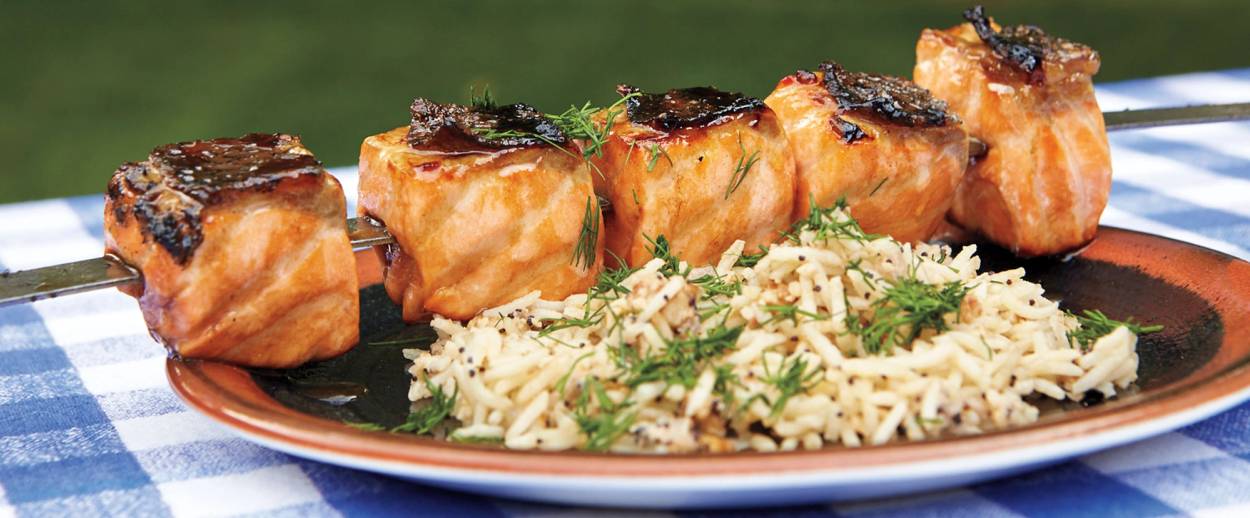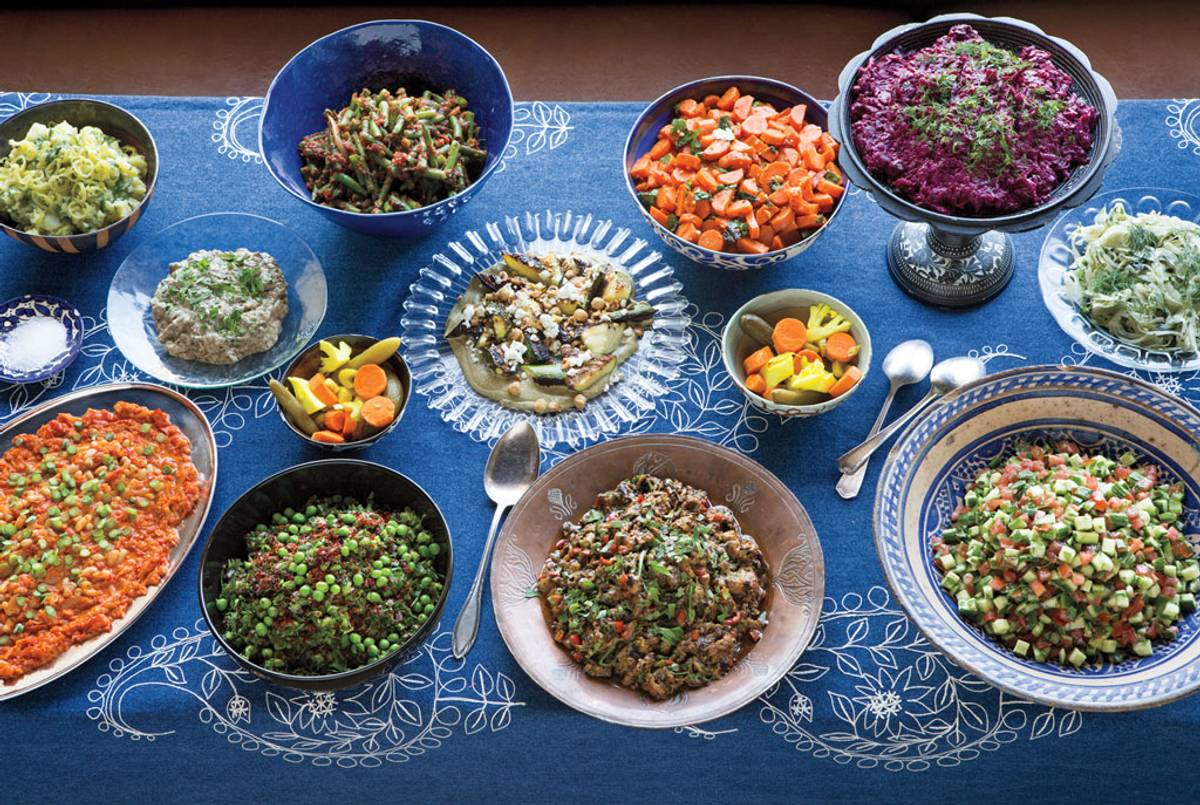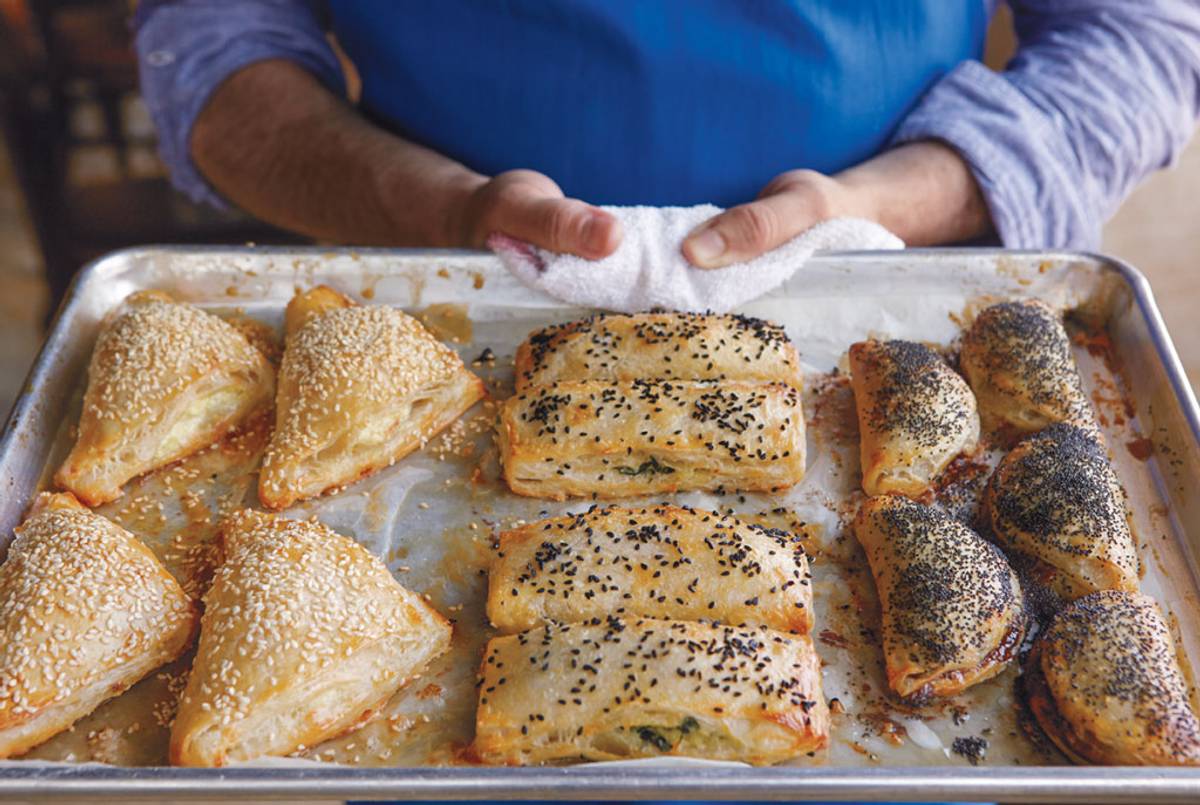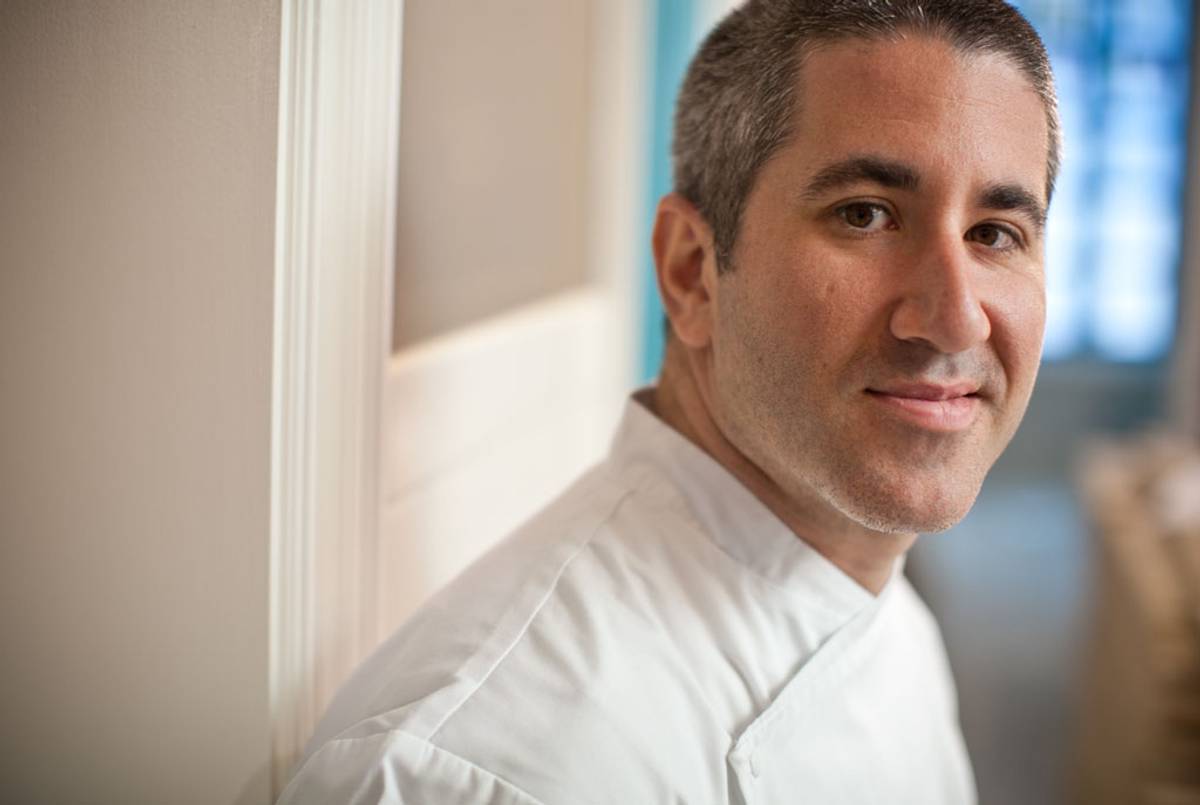Bringing Israeli Cuisine to American Kitchens
The owners of Philadelphia’s popular restaurant Zahav share their recipes—and personal stories—in a new cookbook




When Philadelphia-based chef Michael Solomonov and his business partner Steven Cook opened their first restaurant Zahav in 2008, diners didn’t really know from modern Israeli cuisine. Sure, there was plenty of falafel and hummus in rotation on menus at cheap eateries. The adventurous home cook had perhaps tried her hand with homemade baba ghanouj or baklava. But the delicious subtleties of the innovative cuisine emerging within Israel were not yet on most Americans’ radar. A mention of za’atar or labneh would be met with blank stares.
Flash forward seven years, and Israeli food has taken a seat among the world’s celebrated cuisines. Zahav, meanwhile, is one of the most popular restaurants in the country. Solomonov and Cook have a mini empire of eateries in Philly (some Jewishly focused, some not). And, just this month, they released their first cookbook, Zahav: A World of Israeli Cooking.
It is unusual for a restaurant as successful as Zahav to wait the better part of a decade before putting out a cookbook. Not surprisingly, the idea for a book came to the table a long time ago. “We started talking about it around the one-year mark,” Cook told me. They toyed for a while with the notion of doing an out-of-the-box, all digital cookbook that included instructional videos and other interactive features along with recipes. “We wanted to be pioneers in that arena,” Cook said, “but nobody in the publishing world wanted to talk about it.”
Still, there’s something refreshing about a book written by a team that is seasoned and settled (though far from stagnant), rather than frenzied and striving. “When you first open a restaurant, you have all these ideas, but it takes a while to figure out what the cuisine actually is,” said Solomonov. “The book we would have produced a few years ago would not have been as good as the one we did now.”
***
Like many restaurant cookbooks, Zahav is filled with the dishes that made its namesake famous—in this case, the wood-fired laffa bread, the sultry Turkish hummus (which gets blended with melted butter), and the spoon-tender braised lamb shoulder. There are spins on classic Israeli foods, like the Israeli salad martini (inspired by the flavorful liquid that accumulates at the bottom of the salad bowl), and a new-school chocolate take on the traditional Middle Eastern shredded phyllo confection, konafi.
The book, which is broken down into broad recipe categories, (“Salatim,” “Beyond Chicken Soup,” “Milk & Honey”) also serves as something of an encyclopedia for Middle Eastern ingredients—things like amba, skhug, and urfa pepper. There are profiles on Zahav’s culinary partners, like spice master Lior Lev Sercarz and artisanal tahini producer Soom Foods, and odes to hummus and eggplant. “Sometimes I feel like my mission in life is to make people fall in love with eggplant,” Solomonov writes.
In the cookbook, readers find about Solomonov’s parents’ journeys to Israel, and how he bonded with his Bulgarian grandmother over burekas. They learn that Zahav nearly closed during its first year and why, despite not being kosher, the restaurant’s menu does not include pork, shellfish, or dishes that mix milk and meat. Most importantly, the cookbook shares Solomonov’s passion for the diverse and evolving cuisine found in Israel today. “[It’s] the chronicle of a journey—physical, emotional, personal,” he writes in the introduction.

In the intervening years between Zahav’s opening and now, diners have learned a lot about Solomonov. Thanks to a James Beard, the coveted restaurant award he received in 2011, his name was vaulted into the national food spotlight. From there, it did not take long for word to spread about Zahav’s ethereal food. Review after review touted Solomonov’s “incandescent creativity” and Zahav’s “seductive” energy.
Longer profiles delved into Solomonov’s complicated, long-term relationship with Israel (he was born there but grew up in Pittsburgh and was deeply resentful of the country when he moved back there as a teenager), and explored his deepest personal struggles: his brother David’s death by sniper fire while serving in the Israeli army, and his own battle with and overcoming of a drug addiction. (These stories are included in the book, also.) The candidness and honesty found in these articles, which demonstrated Solomonov’s rare ability to be truly vulnerable as a decorated public figure, only deepened diners’ connection with him and his restaurants.

Solomonov’s rising star mirrored the ascent of modern Israeli cuisine in America. “Zahav played a big role in making Israeli food part of the national conversation,” said Devra Ferst, senior editor at Tasting Table. “It is now a cuisine that people are interested in, whether or not they have a personal Jewish connection.”
Meanwhile in 2012, the cookbook Jerusalem, by Yotam Ottolenghi and Sami Tamimi, introduced previously unknown ingredients like rose water and date syrup and food preparations like charred eggplants into America’s culinary lexicon. Restaurant goers got hooked on the mezze-style, vegetable-forward, shared-plates approach to dining that is now a common feature of many menus. And in the past half-decade several modern Israeli and Middle Eastern restaurants have entered the field—places like Balaboosta in New York (whose chef, Einat Admony, also recently published a cookbook), Shaya in New Orleans, and Madcapra in Los Angeles. Cook and Solomonov also launched Dizengoff, an inventive Israeli-style hummus shop that serves as something of a rambunctious younger cousin to Zahav.
Amid all this activity, one might question whether the world really needs another cookbook about modern Israeli food right now. I would argue it most certainly does—because up until now, Michael Solomonov hadn’t written one.

That is admittedly a big statement. But perhaps more than any other chef right now, Solomonov is uniquely positioned to be an American ambassador to Israeli cuisine. He is from Israel, but also very much from here. This dual citizenship and identity allows him to translate the flavors and concepts of Middle Eastern cuisine with a decidedly American accent. Next spring, he will serve as a literal guide to Israel’s food as the narrator and adventurer-in-chief for the film The Search for Israeli Cuisine, airing on PBS.
Solomonov knows firsthand how exciting it is to be an American trying these foods for the first time. And the cookbook reflects that genuine, wonderstruck enthusiasm. “In Israel,” Solomonov writes of his honeymoon trip there with his wife, Mary, in 2006, “my palate was never fatigued. … There was always a new bite to try, a new flavor to stimulate my appetite.”
Yotam Ottolenghi may be an inimitable missionary of Israeli cuisine, but living in London, he isn’t quite ours. Solomonov is a Pittsburgh boy, now living and cooking in the city of Brotherly Love. And his regional American-influenced recipes for things like pomegranate glazed salmon (recipe here), pumpkin broth with fideos (short noodles popular in Sephardic kitchens), and tomatoes stuffed with dirty rice remind us that despite his bona fide Israeli cred and classic French cuisine training, he is one of us.
***
Like this article? Sign up for our Daily Digest to get Tablet Magazine’s new content in your inbox each morning.